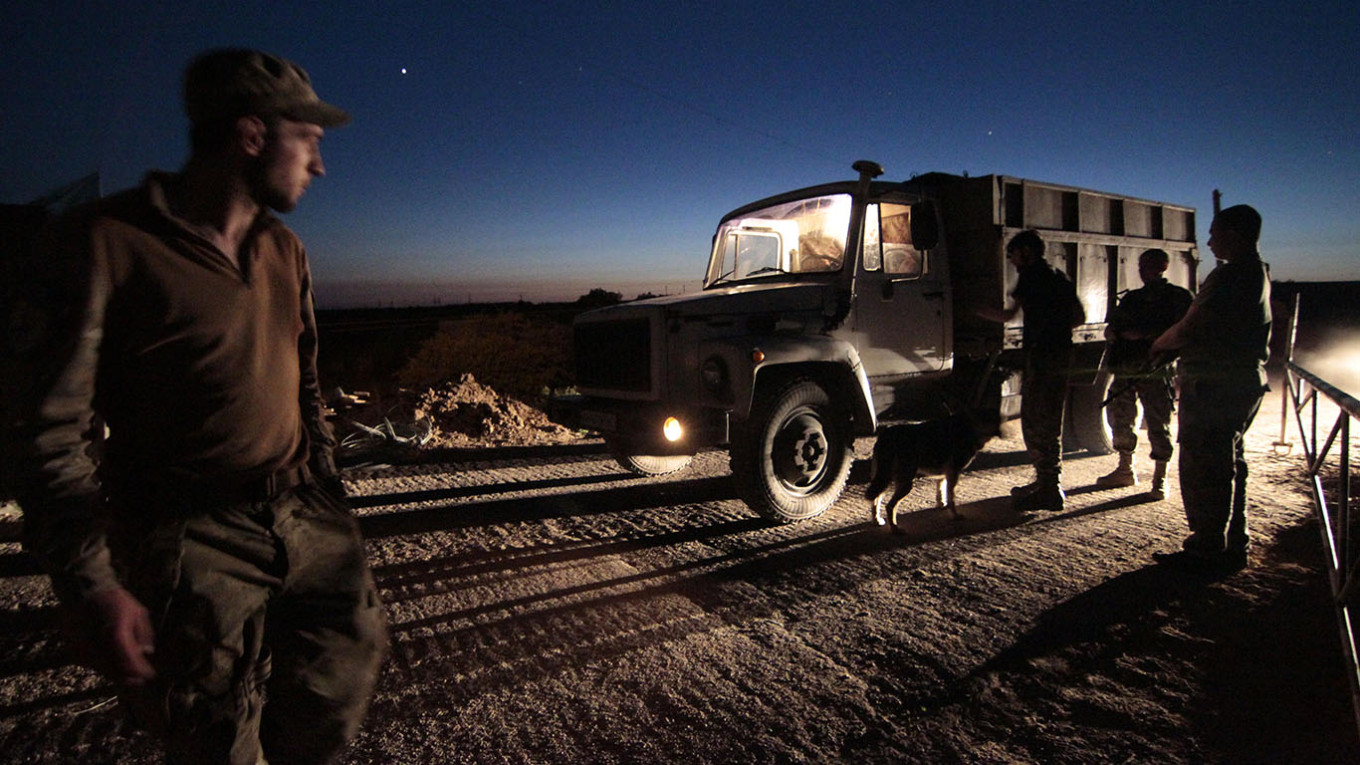The swift approach of Trump’s inauguration has resurrected a once-dead idea — the resource war — among leftist critics of U.S. policy, Russia’s apologists, and Republican politicians lobbying Trump. The Ukrainian Association of Geologists estimates that the country has as much as 5% of the world’s critical minerals resources, including titanium, uranium, lithium, gallium, manganese, beryllium, rare earth elements, bulk ores like iron and scores of other minerals. It is hardly a stretch to imagine that Kyiv and Moscow are aware of their strategic value.
Resource wars typically bring oil to mind. However, cleantech is changing how nations conceive of energy security. Where fossil fuel crises are immediate — these fuels are produced or imported, used only once and sometimes have storage constraints — the clean energy crises of the future come from disruptions to the supplies of metals required to build essential technology. In turn, these metals are processed from ores that, in their raw form, can be stacked in warehouses indefinitely.
Proponents of the financial windfall from these minerals might rethink the scale of the markets involved. In tonnage equivalent, the world consumes over 5 billion tons of crude oil and its derived products every year. Financial markets trade oil product futures equivalent to 2.5 trillion tons, the combined markets of which generate trillions of dollars of trading activity.
Among critical minerals, copper is king with a physical trade of about 30 million tons a year, worth closer to $270 billion with a comparatively small futures market footprint. Lithium — a hot topic for Ukraine’s mineral riches — is closer to 1.5 million tons and lacks a liquid futures market for now, generating more like $30 billion a year. Critical minerals are indeed critical but do not generate the same financial muscle as oil to finance recovery or provide tax revenues.
If Russia’s war aims concern Ukraine’s mineral wealth, the obvious question is what comes next? Sanctions are unlikely to go anywhere and Europe will not turn to buying resources from Russia. China controls half or more of the processing and refining of virtually every critical mineral, often through vertically integrated companies that are profitable at lower prices than their Western peers. Either Russia intends to build a green economy — terrible for its existing growth and fiscal model — or it will sell to Chinese buyers who can drive a hard bargain on price.
Even if it did develop the deposits, they would not provide much of a boon for an economy of Russia’s size, development needs, and labor shortages without a new industrial policy and access to Chinese and Western cleantech IP. Fifteen years of elite skepticism cost Russia the chance to become an exporter of this emerging technology. Though it has increased copper production, Russia’s Class I nickel is worth less now thanks to China-driven supply gluts from Indonesian mines. Furthermore, its platinum and palladium reserves become less important with each passing year since their primary uses are for combustion engines and car exhaust pipes.
For Ukraine, on the other hand, these reserves are strategically valuable because they could grant Kyiv a competitive advantage for cleantech and nuclear tech manufacturing. A post-war Ukraine could benefit from reshoring supply chains out of Germany, as Poland and other eastern European members of the EU. If Kyiv were to ensure rapid investment and development, it would likely look at primarily taxing miners’ profits rather than extraction, significantly reducing the tax base from the sector in exchange for export earnings to bolster the hryvnia.
Estimating the value of the country’s mineral wealth is a mug’s game. Commodity markets are volatile and metals can be substituted with each other much more than fossil fuels as material science improves. It’s easy to forget that in historical terms, these metals-centric energy systems are still new. One of the reasons electric vehicles lose their value so quickly is the sheer pace of innovation and improvements in range every year.
Some inputs are safe bets. We live in a period of rising defense spending, creating demand for titanium. Equally, the AI and big data revolution requires semiconductors that use neon gas, something Ukraine happens to have.
Ukraine also has gallium, a rare metal used in semiconductors, solar PVs, LED lights, circuitry and power converters. China recently imposed export controls on gallium in response to U.S. policy, exploiting its near-total control of refined gallium production. This could provide an opportunity for Ukraine to become indispensable to global supply chains, but the market is quite small in financial terms.
Dangling mineral reserves as a carrot for long-term U.S. commitments sounds reasonable but makes less sense than meets the eye. Though the U.S. is incredibly mineral-rich, it takes decades to build new mines. The new Congress is likely to enact reforms to ease that process.
Assuming a peace deal is even possible, Ukraine will still have to compete with mineral-rich countries in Latin America, sub-Saharan Africa, the Asia-Pacific, Canada and Australia for Washington’s affection. It will have to do so at a time when many metals markets are oversupplied with declining investment for new production.
Sadly for Kyiv, Europe has the most to gain from unlocking a new supply of minerals. Squeezed between the mercurial bellicosity of Trump and the mounting pressure of China’s cleantech prowess and economic slowdown makes Beijing even more reliant on exports, the continent’s reliance on trade for a large share of its GDP makes it an ideal partner for Kyiv. Building mines in the EU is even harder than in the U.S. Onshoring mineral value chains provides opportunities for cost-savings and vertical integration. For all its tough talk and acknowledging the growing gap between Europe’s financial support for Ukraine and that of the United States, there is not yet reason to believe European governments are willing to make even larger sacrifices to ensure Ukraine wins a fair peace.
Lastly, there is the essential matter of what the Ukrainian people themselves want to happen. Mineral wealth is always politically contentious, the site of conflict between local communities, labor, central governments and major mining companies. These resources are valuable, not as bargaining chips, but as the foundations of new sectors in a post-war economy.
Russia may seek to deny mineral resources to Ukraine or exploit them. That would be a tragedy. Ukraine may seek to use its mineral wealth as a diplomatic object of negotiations for a just peace. That would be completely understandable in a war for national survival. Whoever controls these deposits faces the whims and disorder of rapidly changing markets that confound expectations and pose challenges.
A Message from The Moscow Times:
Dear readers,
We are facing unprecedented challenges. Russia's Prosecutor General's Office has designated The Moscow Times as an "undesirable" organization, criminalizing our work and putting our staff at risk of prosecution. This follows our earlier unjust labeling as a "foreign agent."
These actions are direct attempts to silence independent journalism in Russia. The authorities claim our work "discredits the decisions of the Russian leadership." We see things differently: we strive to provide accurate, unbiased reporting on Russia.
We, the journalists of The Moscow Times, refuse to be silenced. But to continue our work, we need your help.
Your support, no matter how small, makes a world of difference. If you can, please support us monthly starting from just $2. It's quick to set up, and every contribution makes a significant impact.
By supporting The Moscow Times, you're defending open, independent journalism in the face of repression. Thank you for standing with us.
Remind me later.






